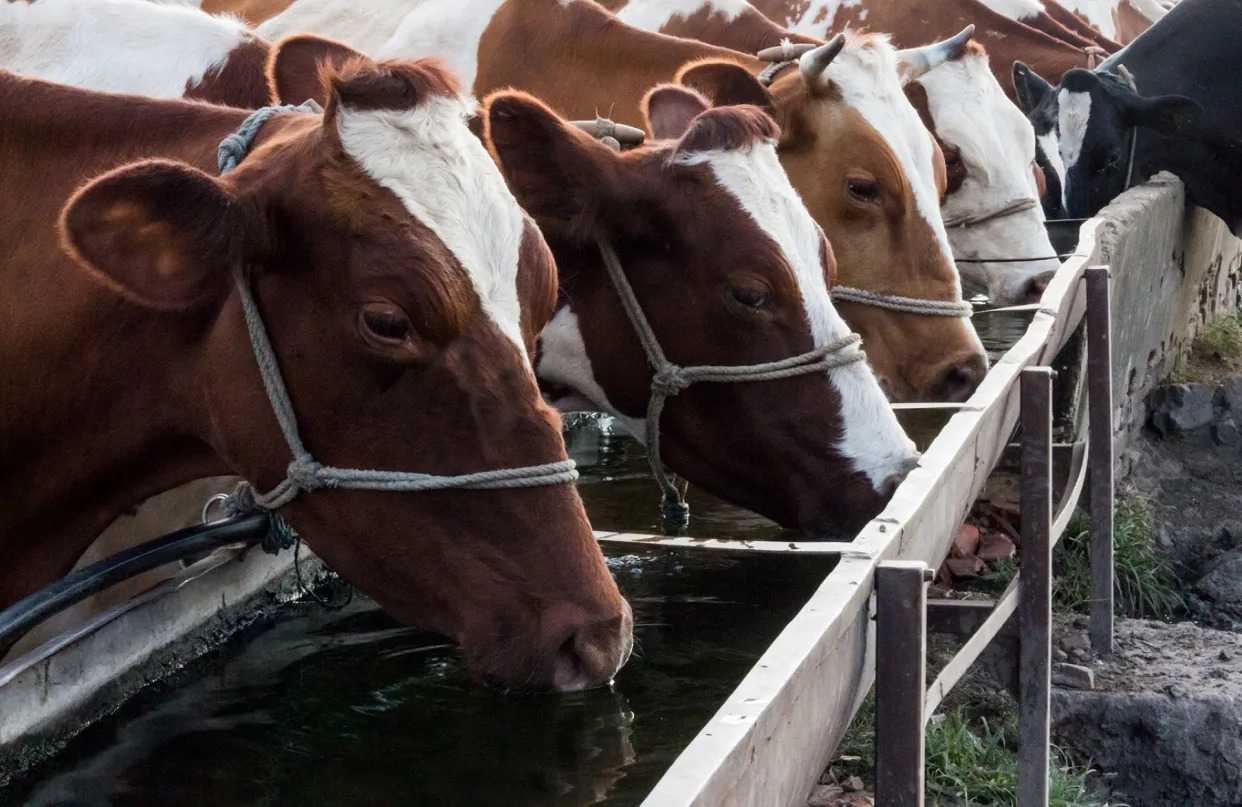The Cool Down
Veterinary doctors disturbed by discoveries during autopsies of several cows
Leo Collis – December 13, 2023

The death of three cows in Kota, India, provides an alarming reminder about the impact of plastic pollution on the natural world.
What happened?
Veterinarians conducted a postmortem on cows that unexpectedly died at a cattle shelter in Bandha Dharampura and found polyethylene and plastic weighing around 40 kilograms, nearly 90 pounds, in the rumen — the largest of a cow’s stomach compartments — of each of the three bovines, according to the Times of India.
According to the outlet, the cow shelter, called a gaushala, had seen several unexplained deaths within a short period, so an investigation was made to understand the potential cause.
Why is this so concerning?
The find suggested that the cows had been eating the polyethylene and plastic material, which got stuck in their digestive systems and led to the animals’ deaths.
The plastic products were likely littered or disposed of inappropriately and ended up at the gaushala, where the cows ingested the plastic.
Plastic is a particular problem when entering the environment because it doesn’t break down naturally, meaning it can remain in ecosystems for years.
The presence of this material in the bodies of animals and humans is an increasing concern, not just because of choking hazards or digestive blockages but because of the harmful toxins plastic contains.
This is not the first time something like this has happened, either. In the United Arab Emirates, for example, plastic has been deemed responsible for the deaths of 1% of camels in the country.
Meanwhile, out at sea, a dugong in Thailand was found to have several pieces of plastic in its stomach after being rescued, which was eventually the cause of its death.
What can be done to stop plastic pollution?
While recycling and disposing of plastic items responsibly will help keep them out of ecosystems on both land and at sea, the most effective way to prevent further pollution is alternative solutions to replace this harmful material.
Opting for reusable bags and water bottles is one solution to avoid some of the most common single-use plastic items. Regarding the latter, the Container Recycling Institute says that 60 million plastic water bottles are thrown away daily in the United States alone.
Otherwise, metal-handled toothbrushes and razors can prevent the volume of plastic pollution from the disposal of these products. Meanwhile, non-plastic sandwich bags can help reduce the use of these plastic single-use alternatives that are often not accepted at recycling facilities because they get caught up in machinery.
Join our free newsletter for weekly updates on the coolest innovations improving our lives and saving our planet.
